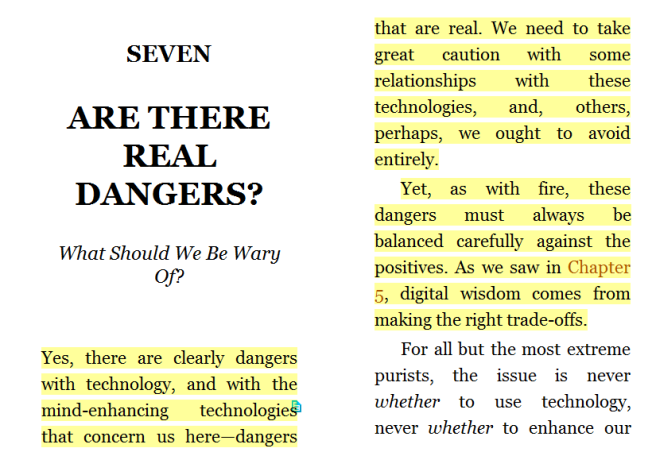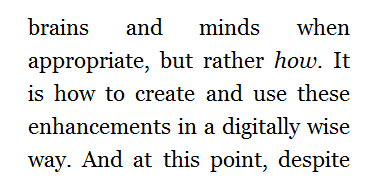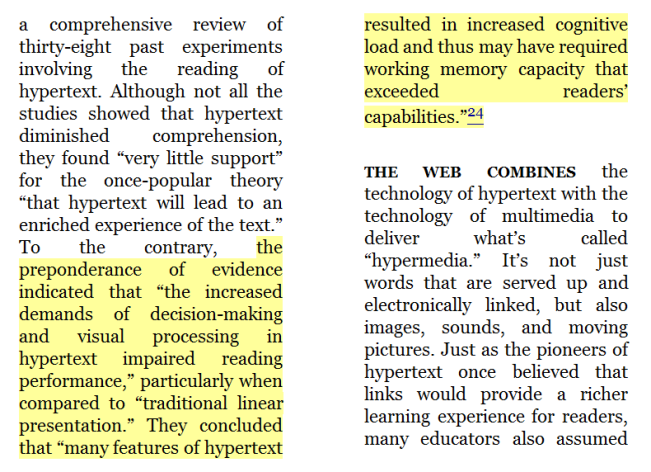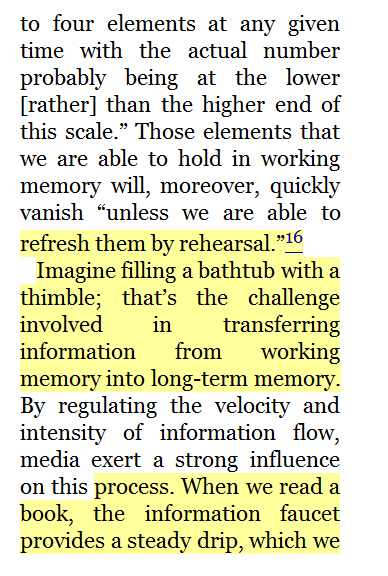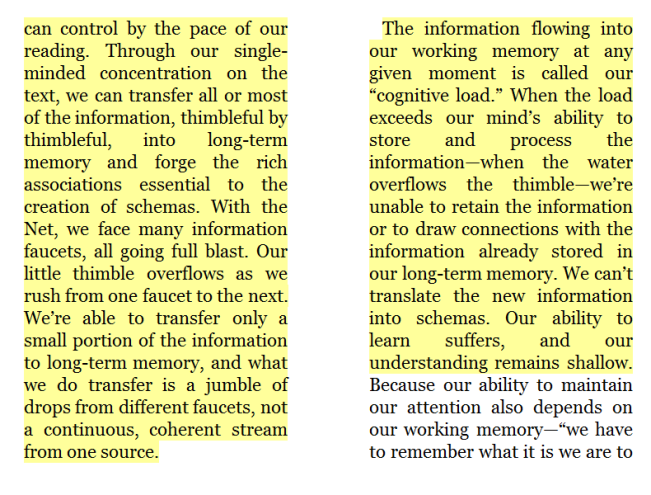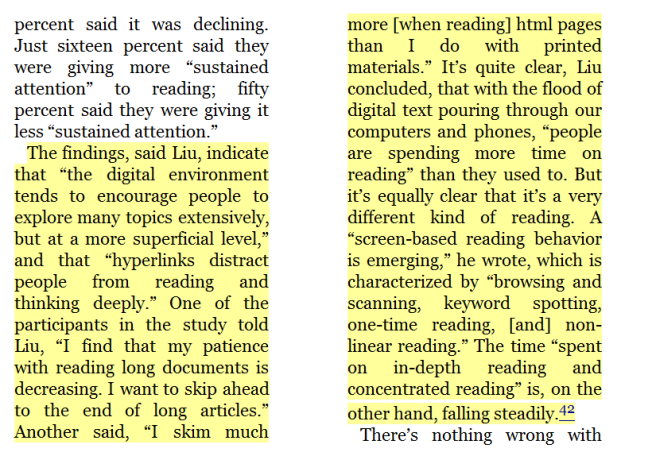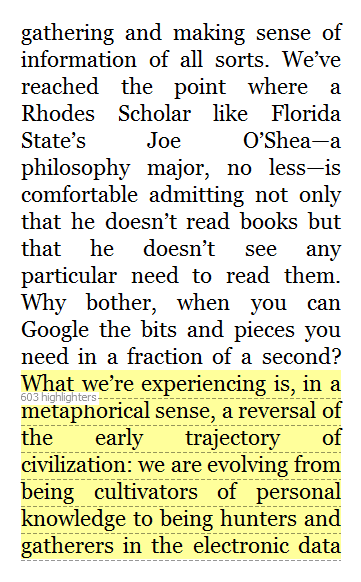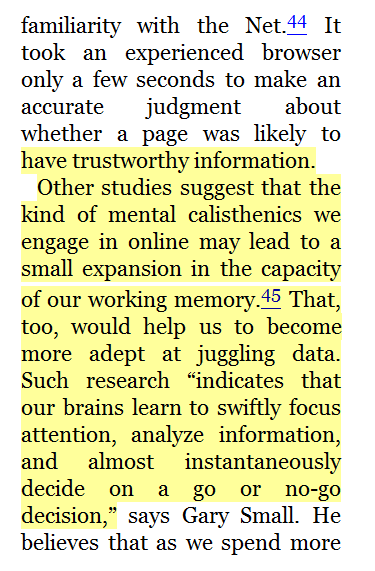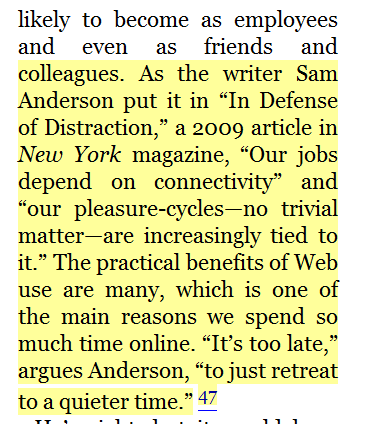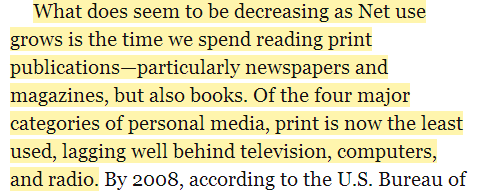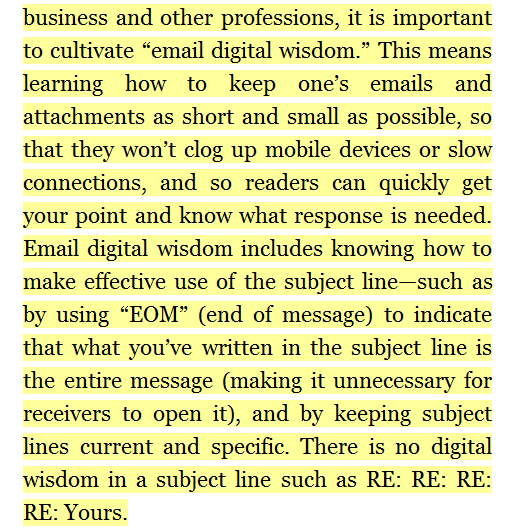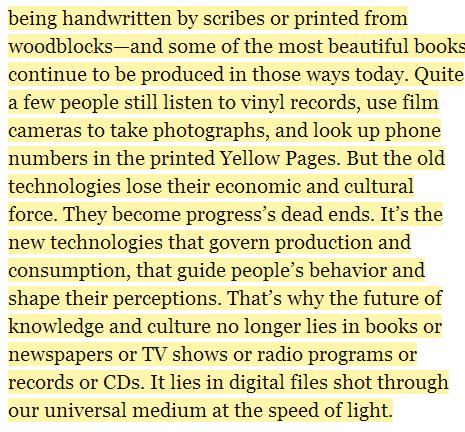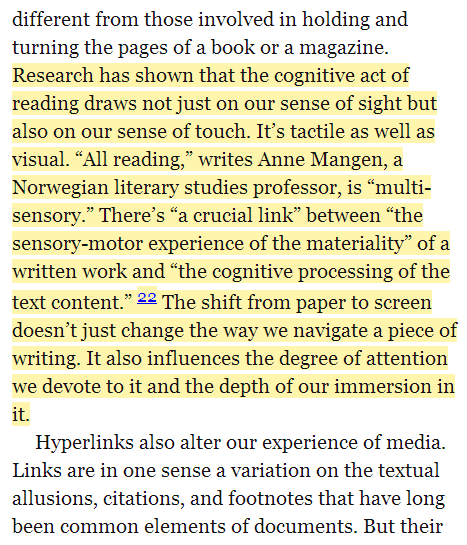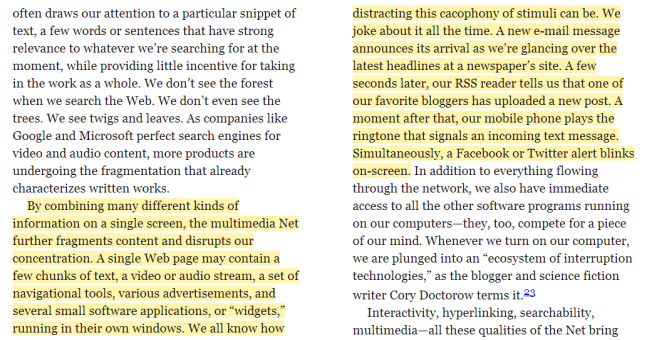Above is a view of Prensky’s that is rather like Carr, a little more cautious about technology perhaps? I think his introduction here is not about being cautious about technology, but it comes from his desire to show that he sees “the other side”, he even refers to the book The Shallows as being one that is overly cautious of technology. He uses his ability to see the other side as a way to make sure that the reader sees he is being fair and that his conclusion is right. At least that is how I see it. His bottom line: it is about how we use technology not whether we should use it. I think he is right here. This is the first time where he seems more even keeled, than he has seemed throughout the rest of the book.
Carr spends a lot of time in this chapter sharing research and studies that were done that demonstrate some of the challenges of reading and retaining information that is read on the computer.
He also shares a metaphor that I think really helps visualize what is happening in our brain when we read on the computer, with all the “extras” vs. reading a book.
This is interesting.
I love thinking about how much more reading kids are doing than before, but it is al little disturbing to think about there being less in –depth reading. The whole idea Carr focuses on throughout the book is about how we are rewiring our brain. The real questions here are, I think, are we changing our brain for the better? How do we know?
This too is an interesting picture, especially in light of the dense history of communication through print, does it seem like we are going backwards?
Carr also counteracts with some small studies that indicate there could be some benefits to surfing the Net as well.
This particular study indicates that it may be possible to expand our working memory. That seems to me to be a huge benefit, if it is in fact accurate and would work for everyone.
SO what is the bottom line? Carr quotes the writer Sam Anderson here:
According to him, the bottom line is, we are not going back.
This might bring one to conclude we should look at the positives of the Net and move on. I do think that we should be doing this. It is not going anywhere, it would be wise,and I think Prensky would agree, for us to embrace it, BUT as Carr indicates, it is also wise to be wary. That although we may be gaining some kinds of intelligece that is different or good from the use of the NET. We are losing other types of intellegence. Is there a final answer? A single answer of what is best, or what is the most wise?
No, there is not one answer. The most wise action we can take is to educate our students with technology since they WILL be using it OFTEN in both their schooling and in their work as they get older. BUT we should also be giving them skills to work off the computer. We should make sure we are also developing their deeper level thinking skills. It seems to me that there is not much of a medium ground when you ask teachers’ their opinions on technology. People seem to feel pretty strongly for or against the use of technology in the classroom. And it seems that it is taking a long time and is a slow process getting technology in the classroom.
I know for myself, before this class, I was more on the side of the fence of people who discouraged the use of technology. That does not mean that I did not use it, or that I did not give my students assignments that they were required to use technology, but I was SO wary. After reading these books and seeing how much more there is out there for teachers than I even realized, I feel like my eyes have been opened a little bit more. I still want to make sure I am giving my students skills that develop higher level thinking, but I also feel pretty strongly about making sure that my students will be well prepared for what will be asked of them as they move through the years, which means using technology and encouraging the use of it throughout the school.
~I still prefer reading a book, but since I am savvier at reading, highlighting and taking notes now on the computer, it is not annoying and does put me a little ahead when it is time to put my post together. Since my notes are already typed, it is easier to make them into a post.
Carr, N. G. (2010). The shallows: What the Internet is doing to our brains. New York: W.W. Norton.(Kindle)
Prensky, M. (2012). Brain gain: Technology and the quest for digital wisdom. Basingstoke: Palgrave Macmillan. (Kindle)
